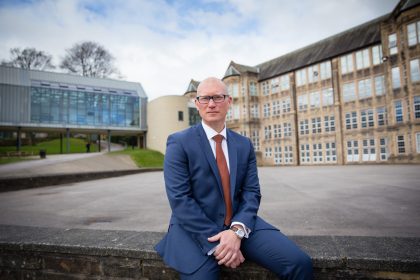“Inequality is now entrenched in Britain from birth to work, and the Government needs to take urgent action to help close the privilege gap”, the Social Mobility Commission says in a recent Government press release.
The release is based on the sixth State of the Nation report published by the Social Mobility Commission which, using new Office for National Statistics data, provides uncomfortable reading in places. The key finding is that social mobility has “remained virtually stagnant” for the past five years. Much more is reported, such as only 16 per cent of pupils on free school meals attaining at least two A levels by age 19 and graduates who were on free school meals earning less than 11.5 per cent than others five years after graduating.
It comes as evidence from the Organisation for Economic Cooperation and Development (OECD) reported that the ‘middleclass has shrunk’. Almost 63 per cent of baby boomers in the UK were part of middle-income households in their twenties compared with only 59 per cent of millennials today.
So, two reports released, one describing a contraction of the middle classes and the other reporting a continued ‘stagnation’ of social mobility. A less than virtuous circle with implications for economy and society, and for fee dependent, independent schools. Undoubtedly our sector continues to be impacted by these trends, not least because many hardworking middle class families have traditionally chosen independent education for their children.
There are other dimensions to this issue which strike a chord in schools such as Bradford Grammar. In 1926 during the headship of Dr W Edwards, BGS opted to receive direct grant funding from the then Board of Education, providing a significant percentage of free places for local boys to benefit from an academic education.
Later, under the auspices of the Butler 1944 Education Act, the long serving Chairman of Governors, Douglas Hamilton, ensured that, by the 1950s, BGS was well-established as a large direct-grant boys’ grammar school of 1,000 pupils, one of 179 such schools reformed under the Act. This arrangement provided a generous supply of able pupils funded by Bradford and West Riding Local Education Authorities, alongside fee-paying pupils selected by the school’s own entrance examination. It was through arrangements such as these that schools like Bradford Grammar quickly became characterised as ‘engine houses of social mobility’, which brings us back to the knuckle of a 2019 concern and debate, and the point of origin for this blog.
Direct grant provision was abolished in 1975 with a change of Government and overwhelmingly, facing difficult choices, direct grant schools elected for independence going forwards. The Assisted Places Scheme that replaced direct grant arrangements, to which BGS belonged from the 1980s, was removed from the national education scene in 1997. In response, many independent schools like BGS strained hard to develop their own ‘bursary’ funds to mimic Assisted Places and thus safeguard the diversity in their classrooms and hold true, as far as practicalities allowed, to the fine detail and spirit of their charitable foundations. Such provision remains and is increasing nationally, but only slowly.
Schools, similar and dissimilar to BGS, cannot act in isolation of other key influences, like housing policy, to resolve the reported ‘stagnation’ of social mobility. We are however, far from impotent and already make a significant difference to those lives we are able to reach. We actively foster partnerships with all manner of education providers, businesses, charities and inspirational, public minded individuals to maximise the benefits we can bring to bear in wider society.
New ‘Assisted Place Awards’ at Bradford Grammar represent one home grown example of this. Careful financial husbandry of school assets and the generous commitment of our benefactors to BGS values, and specifically to our students, enables us to transform the prospects of many young people and encourage an orientation in them to do some good in life for the benefit of others, ‘giving something back’ when they are able. Our most recent public accounts show that just under £850k of means tested fee assistance was provided in the 2017/18 academic year. However, as interest in BGS from all kinds of families grows, so does demand for assistance. We strive to help as many as possible. For September 2019, we have been able to support 8 per cent of all those +11 applicants who were seeking help to access BGS. Only with the support of partners, including existing and prospective benefactors, will we be able to make a difference to more young lives, children of great potential who are keen to attend BGS.
This is powerful, and we are always seeking to do more, at Bradford Grammar and across the independent school sector. News of increasing levels of means tested fee assistance and partnership activity is heartening. The independent sector is diverse, schools differ markedly in size and character, but we are galvanising our efforts in various ways, according to our means, to provide the best educational opportunities we can muster and in so doing play our part to address the issues facing wider society.
“Our most recent public accounts show that just under £850k of means tested fee assistance was provided in the 2017/18 academic year. However, as interest in BGS from all kinds of families grows, so does demand for assistance. We strive to help as many as possible. For September 2019, we have been able to support 8 per cent of all those +11 applicants who were seeking help to access BGS.
Only with the support of partners, including existing and prospective benefactors, will we be able to make a difference to more young lives, children of great potential who are keen to attend BGS. This is powerful, and we are always seeking to do more, at Bradford Grammar and across the independent school sector.”
